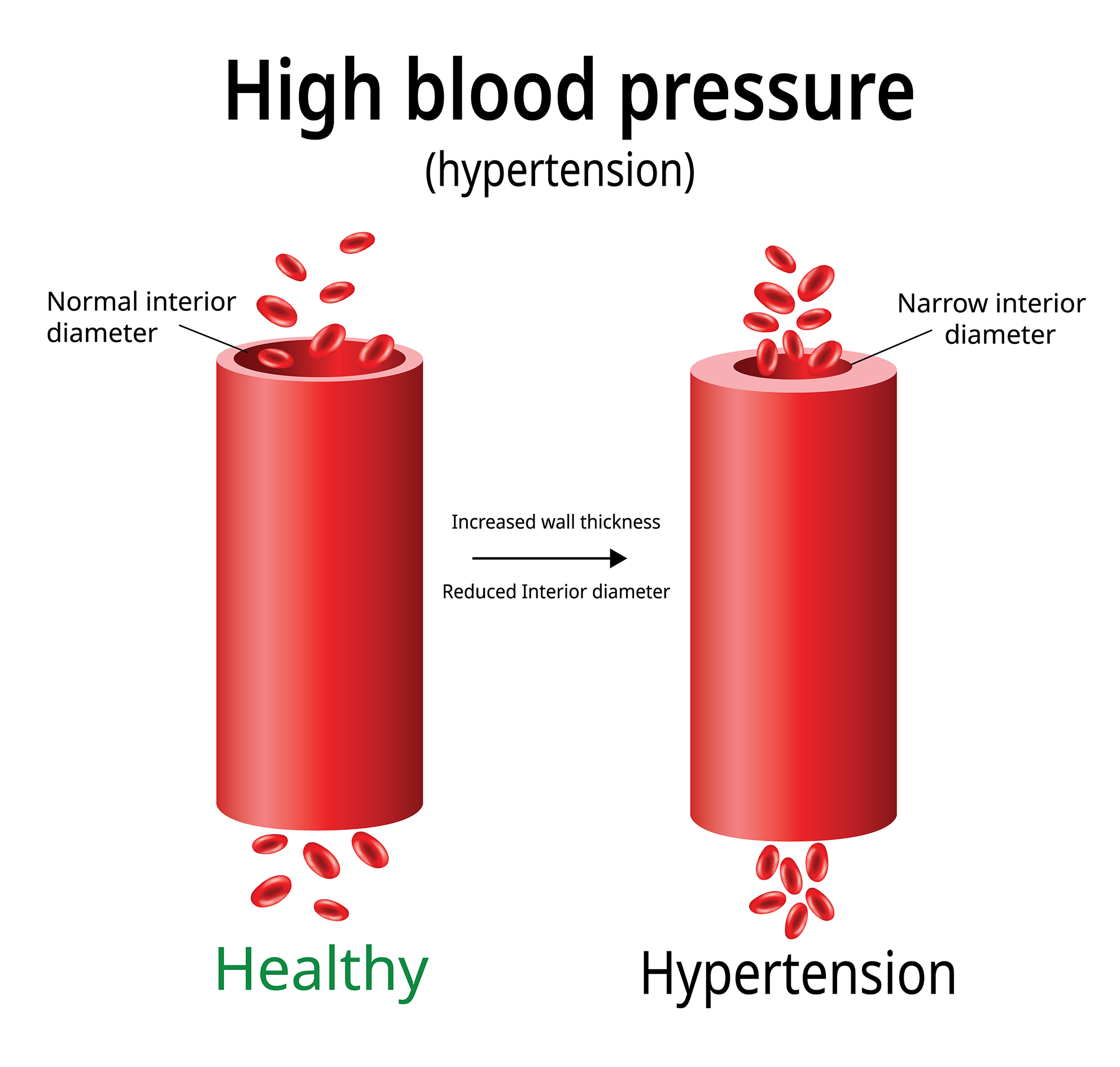
High blood pressure, also known as hypertension, is a common yet serious medical condition affecting millions worldwide. Often called the “silent killer,” hypertension typically shows no obvious symptoms, but it can lead to severe health complications like heart disease, stroke, and kidney damage. In this article, we’ll cover the essentials of high blood pressure, its causes, risks, and how to manage it effectively.
What is High Blood Pressure?
Blood pressure measures the force exerted by blood against the walls of your arteries as your heart pumps it throughout your body. When this force is consistently too high, it places extra strain on your heart and blood vessels, leading to hypertension.
Blood pressure readings are given in two numbers:
- Systolic pressure (top number): Measures the pressure when your heart beats.
- Diastolic pressure (bottom number): Measures the pressure when your heart is resting between beats.
For most adults, a normal blood pressure reading is 120/80 mm Hg or lower. A consistent reading of 130/80 mm Hg or higher generally indicates high blood pressure.
The Stages of Hypertension
Hypertension is typically divided into stages based on the blood pressure reading:
- Elevated: Systolic pressure between 120-129 and diastolic less than 80.
- Stage 1 Hypertension: Systolic 130-139 or diastolic 80-89.
- Stage 2 Hypertension: Systolic 140 or higher, or diastolic 90 or higher.
- Hypertensive Crisis: Systolic over 180 and/or diastolic over 120, which requires immediate medical attention.
What Causes High Blood Pressure?
There is no single cause of high blood pressure; instead, it results from various factors that increase stress on the cardiovascular system. The causes can be split into primary (essential) hypertension, which has no clear origin, and secondary hypertension, which stems from another health condition.
Common Causes and Risk Factors:
- Age: Blood pressure often increases with age.
- Family History: Hypertension can run in families.
- Lifestyle Factors: Unhealthy eating, high salt intake, lack of exercise, smoking, and excessive alcohol consumption.
- Health Conditions: Diabetes, obesity, kidney disease, and sleep apnea are known contributors.
- Stress: High stress levels can cause temporary spikes in blood pressure, which may lead to long-term hypertension if unmanaged.
Why is High Blood Pressure Dangerous?
Hypertension is often silent, meaning many people are unaware they have it until it causes significant health issues. Over time, high blood pressure can cause damage to major organs and increase the risk of:
- Heart Attack and Stroke: Hypertension damages the arteries, increasing the risk of a blockage.
- Kidney Damage: High blood pressure can damage the delicate blood vessels in the kidneys, impairing their function.
- Vision Loss: Hypertension can cause damage to the blood vessels in the eyes.
- Heart Failure: The heart works harder to pump blood, potentially leading to heart enlargement and failure.
Symptoms of High Blood Pressure
Hypertension is often asymptomatic, but very high blood pressure can sometimes cause:
- Headaches
- Shortness of breath
- Nosebleeds
- Dizziness or blurred vision
However, these symptoms can be associated with various health conditions, which is why regular blood pressure monitoring is essential.
How to Manage and Lower High Blood Pressure
If diagnosed early, high blood pressure can often be managed or even reversed with lifestyle changes and, if necessary, medication. Here are key steps for managing hypertension effectively:
1. Healthy Diet
- Follow a diet rich in whole grains, fruits, vegetables, lean proteins, and healthy fats. The DASH (Dietary Approaches to Stop Hypertension) diet is particularly effective for reducing blood pressure.
- Reduce sodium intake by avoiding processed and salty foods.
2. Exercise Regularly
- Aim for at least 150 minutes of moderate exercise or 75 minutes of vigorous exercise per week. Activities like walking, cycling, and swimming can significantly lower blood pressure.
3. Maintain a Healthy Weight
- Weight loss can have a profound effect on blood pressure. Even a small weight reduction can help reduce hypertension risks.
4. Limit Alcohol and Quit Smoking
- Drinking alcohol in moderation and avoiding tobacco can greatly improve cardiovascular health.
5. Manage Stress
- Chronic stress can contribute to high blood pressure. Mindfulness, meditation, yoga, and other relaxation techniques can help manage stress levels.
6. Take Medications as Prescribed
- In cases where lifestyle changes aren’t enough, doctors may prescribe antihypertensive medications. Always take these as directed to manage your blood pressure effectively.
When to See a Doctor
If you’re consistently experiencing readings above 130/80 mm Hg or have other risk factors, consult your healthcare provider. Early detection and management are crucial in preventing the dangerous effects of high blood pressure.
Conclusion
Understanding the basics of high blood pressure is essential for maintaining good health and preventing complications. Regular monitoring, a healthy lifestyle, and, when necessary, medications can make a significant difference in managing hypertension effectively. Remember, high blood pressure is a condition that can often be managed with the right approach, empowering you to take charge of your health.
By staying informed and proactive, you can keep your blood pressure under control and reduce the risk of long-term health issues.

